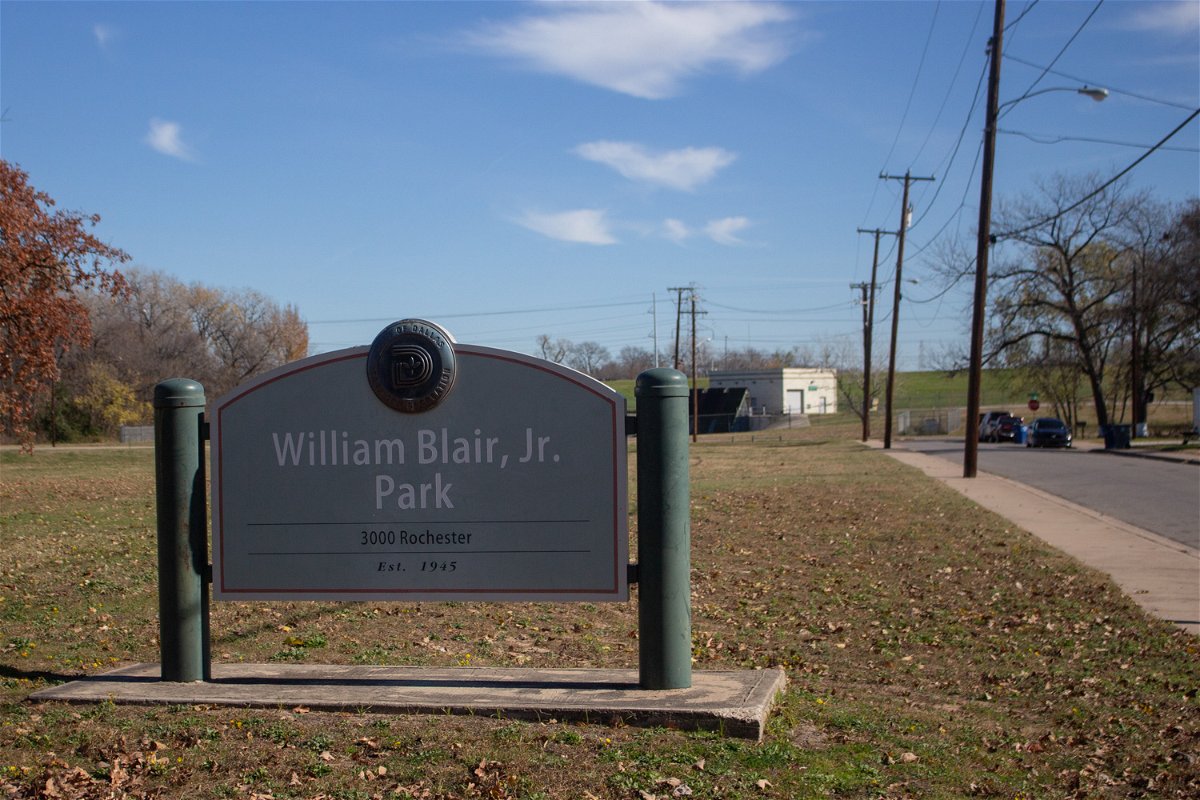
Bonton representatives want to know why no one told them about a city water leak lasting 11 months and spilling more than 3.6 million gallons of water into their community.
The Dallas Environmental Commission brought up these questions in an October meeting with Dallas Water Utilities.
DWU Assistant Director Regina Stencel presented to the commission.
Dallas Water Utilities took almost a year to fix the leak
DWU began investigating the 30-inch pipeline leak in the floodplain area behind the Rochester Levee near William Blair Jr. Park in October 2022. Stencel says staff began efforts to minimize water loss, maintain water pressure and reconfigure the distribution system.
Stencel said the nearby residents were switched to a different line so that residential water pressure would not be affected.
After an internal leak assessment, repairs to the pipeline were completed 11 months later over Labor Day weekend 2023. A second leak about 50 feet away was also identified and repaired.
Service to the pipeline was restored on Sept. 11, 2023.
DWU estimates that 12,000 gallons leaked per day, totaling up to 3.6 million gallons.
Both leaks were found to be joint failures and were suspected to have been the result of ground shifting.
Stencel said the surrounding plant and animal life were surveyed and no adverse effects due to the pipeline leak and subsequent repairs were found.
Bonton residents were not told about the leak
District 7 member Temeckia Derrough said the leak was in her district in Bonton, and this news was “alarming.”
Derrough asked if the city notified surrounding communities about the leak and if it affected residential water bills.
Stencel answered no because the leak was on a transmission line rather than a metered line, and that there was no interruption to service for customers. Therefore, the community was not notified.
Derrough said the standing water could have “increased the habitation of mosquitoes” in the nearby park.
“That park is very utilized by that community,” Derrough said. “It’s a Black park [and] a lot of Black people in that community.”
The surrounding Bonton neighborhood is historically Black.
Derrough said the City should have sprayed for mosquitoes and let the residents know even if they weren’t immediately affected.
Stencel said the leak may have led to an increase in mosquitoes, but said the fact that the area is a floodplain and was designed to hold water.
“It’s an issue with me that ya’ll did not inform the community about the water leak and didn’t take into consideration the mosquito habitation from the water spilling over for months,” Derrough said.
Villareal said Bonton residents have mentioned foul-tasting water, suggesting that rainwater may have seeped into their water. They worried that the water is not properly chlorinated.
Stencel said there was no change to water quality and measures were taken to maintain the line’s pressure.
How long does it take for the city to fix a water leak?
Technical panel member Alan Hoffmann wondered if the City could start to identify potential leaks and breaks with patterns in the data by “studying them beforehand,” especially during seasons of heavy rain.
Stencel said the City’s Leak Protection Program was established in 2004, leading to improvements through those years.
Kathryn Bazan, District 9 member and commission chair, asked if the 11 months between the leak identification and scheduled repair of the leak was typical.
Stencel said they had to isolate the line beforehand, and this response time was not typical. She said the average life of a leak is 10 days, and said she will provide the commission with some data/numbers on leak duration averages.
Bazan said she’s spoken to a trusted resident who reported the issue and followed up but didn’t receive any word or updates back from the City.
Bazan asked for 5-10 years of data on how much water the City has lost, understanding that some of the loss is part of the maintenance process.
Bazan emphasized that as a commission they encourage residents to use the 311 system so the system needs to work and be accountable.
About the Environmental Commission
The Environmental Commission advises the Dallas City Council on environmental issues and the implementation of the Comprehensive Environmental & Climate Action Plan.
The 15 members of this advisory commission are appointed and approved by the mayor and Dallas City Council. The commission also includes eight non-voting technical panel members appointed by the city manager.
The commission has five subcommittees: Environmental Health, Environmental Justice, Outreach & Engagement, Strategic Partnerships and Implementation
Dallas Documenter Shardae White attended the October Environmental Commission public meeting, and this brief emerged from her notes. Click here to read White’s full notes, and here to learn how you can become a paid Documenter at public meetings.

Leave a Reply